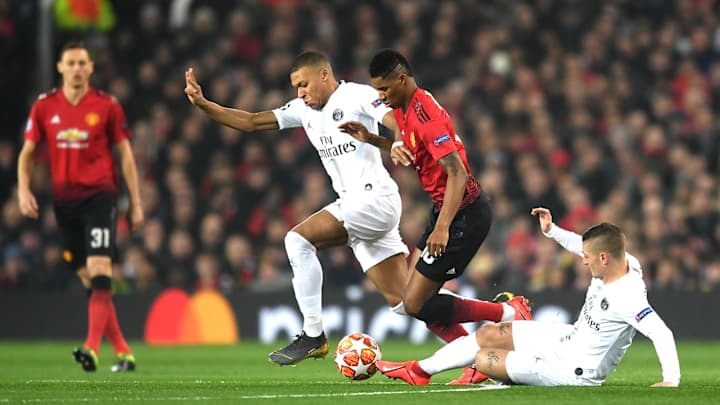Another European Super League Proposal Floods the Zone on Profit-Driven Direction

The temptation upon hearing yet another story about a potential breakaway European super league is to roll the eyes, sigh and think we’ve heard it all before. And we have, but it doesn’t mean that just because none of the prior ones has come to pass before that this proposal won’t either—or at least that this isn’t a significant indicator of the direction of travel. Once the boy has cried wolf once, the best tactic for the wolf is to get him to keeping crying wolf so that nobody listens to him anymore.
The super clubs are greedy. They want more. This is late-period capitalism in action, taking beloved institutions and destroying everything that made them great so that a few billionaires can get even richer. Once, a long, long time ago, football might have been considered to have an intrinsic value, that there was something in the game and the capacity of clubs to represent their cities or regions worth protecting. But not now; all that matters is profit. If it is true in the law, health care and education, why would sport be any different?
Across Europe, football is broken. In Italy, Germany and France, one club remorselessly dominates. In Spain there are two. Those clubs look enviously at the wealth of the Premier League, the popularity of which derives at least in part from the fact that there is a notional big six, from the fact its championship has not been monopolized by one club, from the fact that the allocation of television rights is (relatively) equitable. But rather than seeking to emulate that, or looking to even out resources even further and make their football more competitive, the preferred solution is to smash everything and converge in a super league.
Up until now, the Premier League clubs, recognizing their privileged position, have not been hugely enthusiastic. But Project Big Picture suggests their patience may be wearing; greed may be consuming them as well. Project Big Picture sought—under the guise of bailing out smaller clubs lower down the pyramid, those struggling in the absence of fans during the pandemic—to reify power with the current big six. By reducing the size of the Premier League and abolishing the League Cup, it proposed to create space in the calendar. Managers may complain constantly about fixture congestion, but chief executives abhor a vacuum; that space would have been filled by other fixtures, quite probably those in an expanded Champions League.
The plan leaked Tuesday is overtly backed by FIFA. The plans for an expanded Club World Cup, which have been delayed because of the pandemic, had implied that FIFA would provide a home for clubs rebelling against UEFA, but this for the first time is explicit. That suggests a greater willingness on the part of the elite clubs to apply pressure to UEFA—although the probability remains that this is a negotiating tactic as plans for a potential revamp of the Champions League from 2024–25 are drawn up.
It also seems to mandate the involvement of only five English clubs: European Club Association politics (and recent history) would suggest Tottenham would be the one of the notional big six to miss out. That would have a certain historical irony given how central Tottenham and its owner, Alan Sugar, were to the breakaway that founded the Premier League in 1992, but the fight would be bloody.
Self-interest and self-preservation will, as ever in football, prevail, but among fans at least there seems to be a growing frustration with the posturing of the elite, a sense that they are already enormously dominant and that they will never be sated until the golden goose is dead. And the question now is seriously being asked, what would actually be lost if Manchester United, Liverpool, Chelsea, Manchester City and Arsenal left the league?
Five huge clubs, a lot of great players and a significant amount of revenue, to be sure, but what remained might be more competitive and more fun, particularly if proper controls on spending were introduced from the start. And the elite may find the super league rather less fulfilling than they imagine. Paris Saint-Germain vs. Manchester United is a glamorous tie in the group stage of the Champions League, just as Arsenal vs. Chelsea is a major Premier League fixture, but how much allure would those games have if they were, say, ninth vs. 10th in a super league?
This is just another plan, one that seemingly has no greater chance of coming to fruition than the dozens of other similar plans that have been mooted over the past couple of decades. But as the pressure to shovel even more of the game’s resources to the elite grows, now is perhaps a good time for everybody else to work out what football means and why it matters. It may be time to call the super clubs’ bluff.

An accomplished author of multiple books, Jonathan Wilson is one of the world’s preeminent minds on soccer tactics and history.